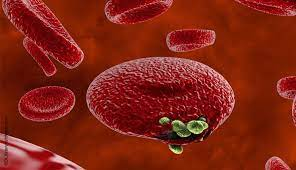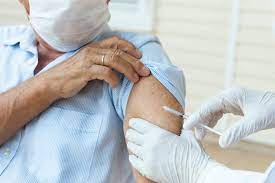Malaria
- Sep 18, 2022
- 2 min read
Malaria served as the reason for 627,000 deaths worldwide in 2020. 93% of these deaths
occurred in sub-Saharan African nations. Furthermore, 80% of the malarial deaths in Africa
occurred in children under 5 years of age. Caused by unicellular parasites, malaria is primarily
transmitted through mosquito bites. When a malaria-infected mosquito bites a human, the
malarial parasites enter the host’s bloodstream and eventually infect their liver (first stage). The
parasites remain in the liver, multiplying for 7-10 days before they enter the main bloodstream
and begin spreading throughout the body of the host, invading red blood cells. The parasites will
then multiply inside of the red blood cells, causing them to burst. At this stage, the infected red
blood cells make the host symptomatic.

Till date, the only treatments for malaria include anti-malarial drugs or insecticides.
However, the recent rise of mosquitoes immune to insecticides and malarial parasites immune
to antimalarial drugs has increased the need for an effective vaccine to use against the
sickness. One of many challenges to the development of a reliable vaccine is the complexity of
genomes that comprise the sickness. For example, the genome of P. falciparum (a malarial
parasite) is much larger and more complex than entire viruses, and consists of over 5,000
genes. Furthermore, the life cycle of this parasite, with its multiple stages, has made it difficult to
select an appropriate protein to target in vaccine development.
However, among the development of several vaccine candidates, RTS, S AS01,
otherwise known as Mosquirix, has shown the most promise. It targets the life stages of the
Plasmodium parasite that occur before the invasion and infection of red blood cells. The
circumsporozoite protein is a major protein expressed on the side of the parasite, and the
Mosquirix vaccine trains the body to elicit an immune response against this protein. However,
many problems lied within the vaccine, causing issues with its efficiency, leading researchers to
develop a new vaccine called R21. In clinical trials with 450 patients, the low adjuvant doses of
R21 have had success rates of 71%, with the high adjuvant doses having success rates of 80%.
Malaria has caused much damage to many people and their families, but we may be gradually
advancing to a solution that puts an end to this sickness.



Comments